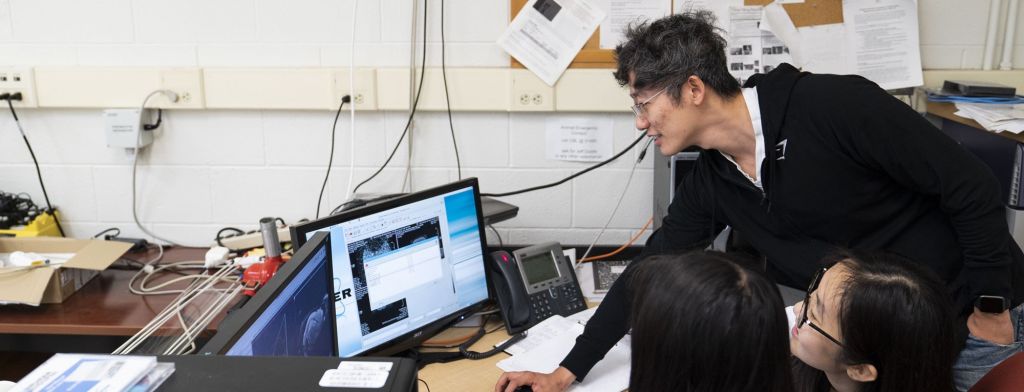
The Neuroscience Graduate Program combines exposure to the breadth of neuroscience, provided by courses in the first two years, with focused research and scholarship in a student’s area of particular interest. To be awarded a Ph.D. degree in Neuroscience, a student must successfully complete:
Required Courses
The first year's curriculum includes courses in neuroscience, supplemented with courses in cellular, molecular, and systems biology, as well as a course on professional development. The second year's curriculum includes graduate seminars in neuroscience and courses on bioethics and biostatistics.
Qualifying Examination
Given at the end of the first year, the qualifying examination tests a student’s ability to analyze the primary literature in neuroscience through ; an oral exam tests a student’s knowledge of neuroscience gained over the first year.
Competency in English
The J. Jeffrey and Ann Marie Fox Graduate School requires that students demonstrate proficiency in written and oral English.
Comprehensive Examination
Usually taken before the start of the third year: consists of a written proposal on a research problem and an oral defense.
Research Project
An original investigation under the supervision of a Neuroscience faculty advisor leading to a written dissertation.
Dissertation Defense
A public presentation of a student's dissertation research and oral examination by a student’s doctoral committee.
The time from admission to dissertation defense averages 5.5 years. Students must maintain a B average (3.0) or better in academic courses to be retained in the program and to continue to receive financial support.